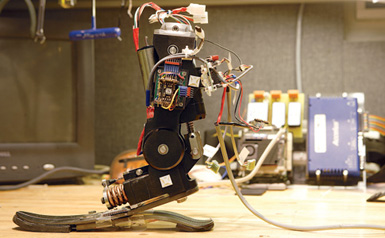

The annoying physical exertion associated with lifting a pill to your mouth and washing it down with a Dixie cup full of H20 could soon be history. Much excitement is building around electronic implants that dispense medicines automatically or via a wireless medical network. According to a team of Australian and US researchers, however, remote Intelligent Drug Delivery Systems (RIDDS) are rife with security issues.
RIDDS devices are implanted under the skin and connected wirelessly to a medical control center where healthcare workers can adjust medication frequency or levels as necessary, based either on direct patient observation or sensor outputs. The technology is being created for patients with physical disabilities, learning difficulties, or who are otherwise unable to give themselves medication.
As with any unproven wireless communications technology, RIDDS are open to various hacking and cracking issues, including eavesdropping, jamming, and tampering. And that’s where the researchers caution RIDDS devices could prove deadly. They claim a hacker might intercept data, steal personal information, or even trigger commands to release medication inappropriately and so harm or kill a patient.
Gulp.
Via: EurekAlert







